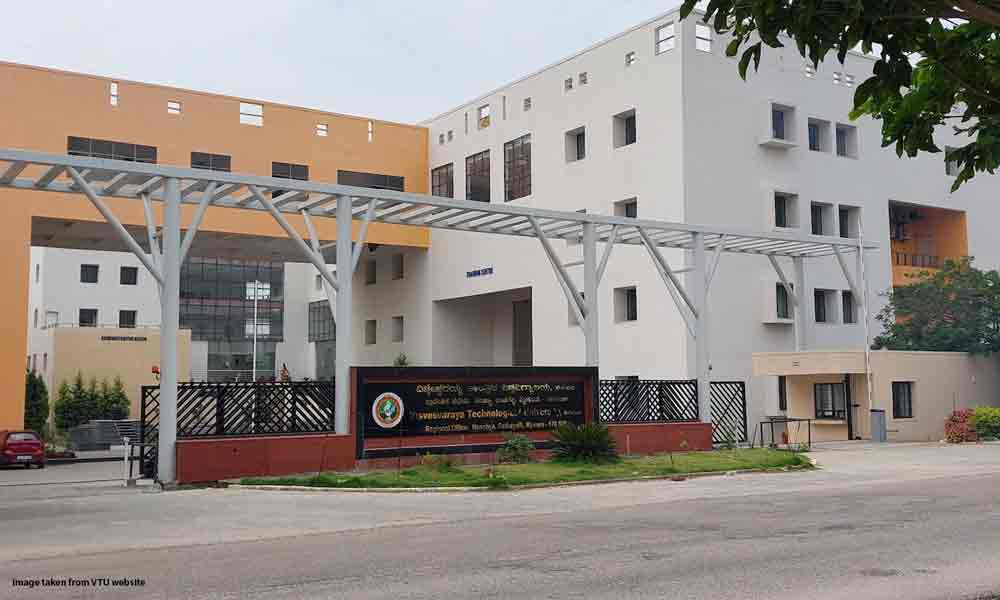Core engineering branches like electrical, civil and mechanical are losing their sheen. In the last decade engineering seats in core branches have reduced from 180 to 60 whereas in non-core branches seats have increased.
This year in Karnataka Common Entrance Test (KCET) rounds of counselling, seats in non-core branches have filled earlier than those in core branches like electrical, civil and mechanical engineering.
Around 90 percent of seats in Computer Science (CS), Artificial Intelligence (AI), Data and Machine Learning (DLS), Big Data Analysis (BDA), Robotics (RB), Mechatronics (Mecht.) and Information Technology (IT) have been the first preference in the first round of counselling this year.
In engineering terminology, core branches typically include Electrical, Civil and Mechanical; apart from these are termed non-core branches.
The counselling process ends after the third round. Many affiliated colleges of Visvesvaraya Technological University (VTU) have reported that several seats of Electrical-Civil-Mechanical (ECM) were vacant till the last round of counselling.
Nagarjuna, a first year student of Bachelor of Engineering (B.E.) in CS ,from R.V. College of Engineering said, “For me employment opportunity is the priority that only non-core branches can provide. I don’t want to narrow down my chances by pursuing engineering in core branches. Core branches are difficult to study and to clear in semester exams and companies also recruit mostly from CS, AI, BDA, Mecht., IT.”
He said that most students are moving away from ECM branches because of outdated syllabi. The curriculum of the ECM does not meet the needs of companies who hire young engineers. He has seen seniors from core branches not getting placed. Core branch students agree that non-core branches have more scope.
Rakesh Ahuja, final year student of mechanical engineering from the Bangalore Institute of Technology said that it would have been better if he had chosen one of the non-core branches. He said that while it was true that ECM was once considered important enough that seats would be filled within a few hours of initial counselling, things are different now. It’s difficult to earn money as an ECM engineer unless one has graduated from top institutes in the country.
Rakesh said, “I’m from the Mechanical branch. I don’t know whether I’m going to get placed on campus or not. I dreamt of becoming a good engineer but now I’m regretting my choices.”
Prof. Glady Jacob, Admin Head of Christ University, Kengeri campus said, “We brought down our number of seats in ECM from 180 to 60 whereas we increased the non-core seats by 90 percent. Earlier non-core branches were allocated 30 to 50 seats but now because of the demand of the placement cell we have to focus more on non-core branches than the core.”
Experts say that automation in engineering has resulted in lower demand for engineers.
Dr. Sudarshana Reddy, Regional Director of VTU, Bengaluru said, “At present engineering market has become automated. Earlier, a company needed hundreds of engineers, now the same amount of work can be done by fewer people. Automation has replaced the job profile of engineers. Engineering colleges are compelled to act on the demand of the manpower that the industry wants. We are making changes with time by slashing ECM seats and adding seats for non-core.”
Sivakumar H.R, Public Relations Officer (PRO) of Karnataka Examination Authority (KEA) said that filling up seats of non-core branches shows that students and their parent’s interests and preferences are towards a secure job profile. In this digital era most tasks are now performed by predesigned algorithms. Work which is done manually has more chances of errors, so industry wants to minimise the error and bring it to perfection like in designing of bridges, manufacturing of vehicles, etc.
Indraneel Sen, Retd. Associate Professor, Electrical engineering from Indian Institute of Science (IISc), Bangalore added that engineering has completely been commercialised. He alleged that companies are now directing how syllabi for engineering courses ought to be drawn up. Only those subjects relevant to engineering firms are taught from the first year, he said, adding that students don’t have to learn basics which are a pre-requisite to become a good engineer.





Very grateful for this and all the work you Spencer and all the other guys do around here. You guys are awesome. Many thanks.